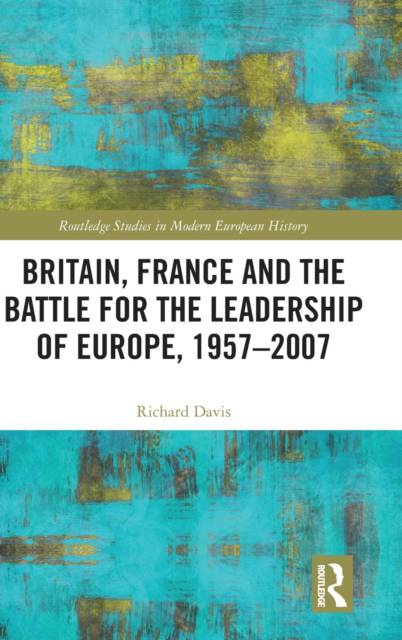
- Retrait gratuit dans votre magasin Club
- 7.000.000 titres dans notre catalogue
- Payer en toute sécurité
- Toujours un magasin près de chez vous
- Retrait gratuit dans votre magasin Club
- 7.000.0000 titres dans notre catalogue
- Payer en toute sécurité
- Toujours un magasin près de chez vous
Britain, France and the Battle for the Leadership of Europe, 1957-2007
Richard DavisDescription
The book gives an account of an essential part of Britain's troubled relationship with the rest of Europe after 1945 - particularly considering the rivalry of France and Britain between 1945 and 2007.
The record of Britain's relations with the rest of Europe, and in particular with France, from 1945 onwards was seen by the politicians and diplomats in charge of foreign policy very much in terms of a diplomatic battle. This is paradoxical given that European integration was supposedly aiming to create a European community. Although Britain has usually been seen as an at-best half-hearted participant in European integration, it nonetheless maintained its ambition to assume the leadership of Europe. This inevitably led to a confrontation with France which shared the same goal. This book begins by looking at the opposing ways in which these two ancient European rivals presented very different models for the sort of Europe they wished to see emerge. It goes on to consider the record of their rivalry between 1945 and 2007. After this, Britain effectively gave up the battle for the political leadership of Europe. This, however, should not obscure the fact that it had succeeded in imposing many of its social and economic models on Europe.
This volume will be of interest to both undergraduate students and general readers interested in Britain's position in Europe.
Spécifications
Parties prenantes
- Auteur(s) :
- Editeur:
Contenu
- Nombre de pages :
- 236
- Langue:
- Anglais
- Collection :
Caractéristiques
- EAN:
- 9781032148984
- Date de parution :
- 04-08-23
- Format:
- Livre relié
- Format numérique:
- Genaaid
- Dimensions :
- 152 mm x 229 mm
- Poids :
- 494 g

Les avis
Nous publions uniquement les avis qui respectent les conditions requises. Consultez nos conditions pour les avis.






